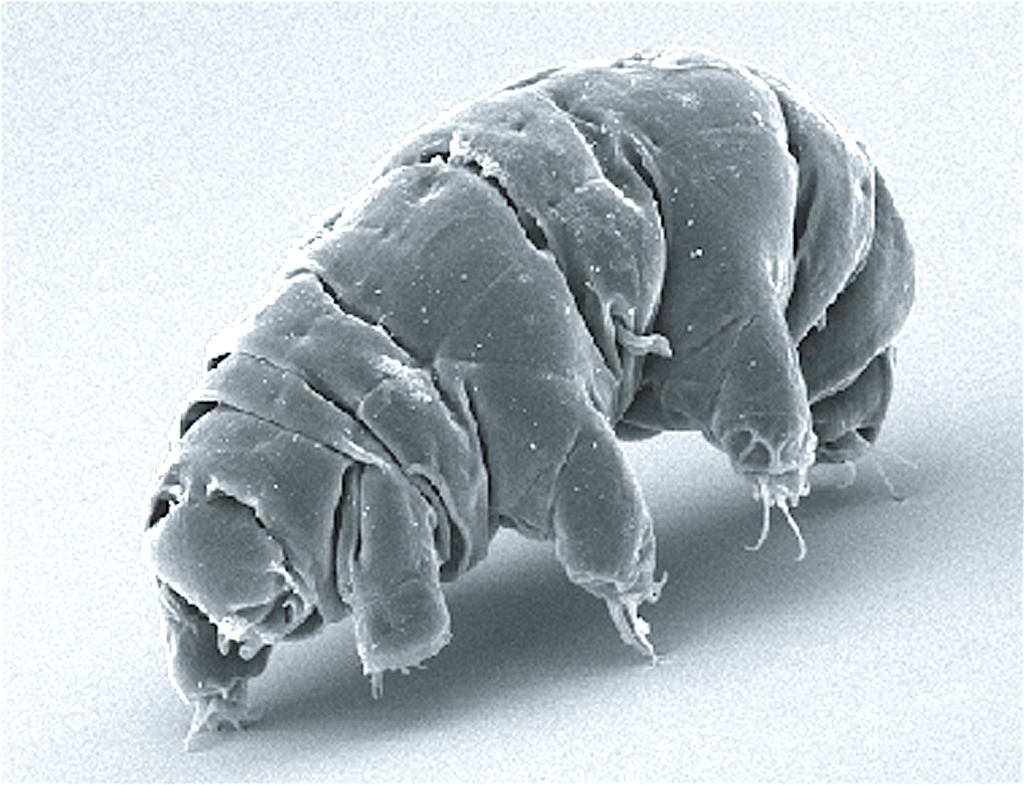The water bear, also known as a tardigrade or moss piglet, is an eight-legged animal smaller than 1 millimetre long and the hardiest creature on Earth. Over years of scientific testing, it has shown the ability to survive -200 degrees Celsius, more than an hour in boiling water, and even enduring radiation in space. The tardigrade’s extreme toughness comes partly from a gene that generates shield-like proteins to protect its cells against radiation and other environmental damage.
Taking advantage of tardigrade’s natural features, a team of scientists from the People’s Liberation Army Academy of Military Medical Sciences in Beijing has claimed to have successfully inserted a gene from tardigrade into human embryonic stem cells, resulting in significantly increased resistance of the human cells to radiation.
The gene insertion was said to be carried out using the CRISPR/Cas9 gene-editing tool. According to the team at the Radiation Biotechnology Laboratory at the Academy, nearly 90% of the human embryonic cells carrying the water bear gene survived a lethal exposure to X-ray radiation in their laboratory experiment.
Embryonic stem cells are collected from an early human embryo that can develop into any cell type. These cells can be cultured in a laboratory and have been used widely in scientific studies on human development. Adding an alien gene from the water bear into human embryonic cells could lead to harmful mutations or even kill the cells because of the genetic gap between the two species. According to their paper, the team was aware of this risk, as the shielding proteins are unique to water bears. The immunity response after cross-species expression is unknown and can lead to some safety issues. Genetic analysis found no mutations in the modified cells’ chromosomes, and the cells functioned normally and even grew faster at some stages of development.
Tardigrade is among the favourite test subjects of scientists involved in astrobiology and those searching for answers to the origin of life. Tardigrade’s unique ability to sustain radiation exposure has made it a test organism for many radiation exposure experiments on space capsules and even the International Space Station. On the medical front, there is currently no respite from acute radiation sickness (ARS), a medical problem faced by military personnel, civilians, and emergency workers when responding to nuclear accidents and nuclear terrorism or even those engaged in long-duration space travel. Professionals from these backgrounds could survive if the genetically-modified cells could be implemented into the bone marrow to generate new blood cells with resistance to radiation. According to the researchers, the tardigrade gene could bring other benefits to humans as well. This gene protects cellular DNA against oxidative stress, which is central to developing many diseases, including cancer, ageing, diabetes, inflammation, and Parkinson’s disease.
While the experiment was legitimate because it was conducted entirely with artificially cultured cell lines in a test tube, questions related to bioethics are being raised as the study could open a proverbial ‘can of worms’ and lead to biowarfare scenarios.


